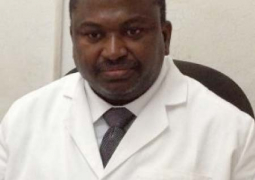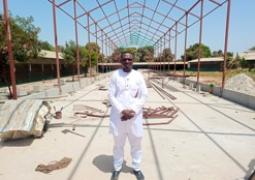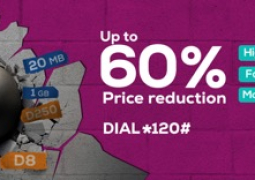
The interface also discussed pertinent issues such as family planning, cervical cancer and various forms of Gender-Based Violence (GBV) including harmful practices of Female Genital Mutilation (FGM) and Child Marriage.
Conversations on enhancing parental care through parent-to-child dialogue and the need for men to be supportive of their spouses and family members among other issues were also highlighted during the gathering held in Koba Kunda.
The engagement was part of the 12-day “I Am for Zero” campaign, which seeks to promote the realisation of UNFPA’s three transformative results: zero unmet need for family planning; zero preventable maternal death; and zero Gender-Based Violence and harmful practices.
The campaign is aimed at finishing the unfinished business in Sexual and Reproductive Health and Gender-Based Violence specifically targeting women, men, adolescents and young people in hard-to-reach communities in Central River region North, Baddibu in the North Bank region as well as Wuli or Fatoto areas in the Upper River region.
The campaign is being conducted in collaboration with the SOS Mother and Child Clinic, Regional Health Teams in the NBR, CRR and URR, Gambia Family Planning Association and the Network Against Gender-Based Violence, among others.
The initiative is part of a broader campaign to demonstrate the significance of partnerships and collaboration in the realisation of the United Nations Sustainable Development Goals 2015-2030.
Lamin Camara, programme analyst – Adolescents and Youth at the UNFPA Gambia Country Office, said strong male involvement is required in ensuring no woman dies of preventable causes while giving life, achieving gender equality and also ensuring that women live in health and dignity.
Camara explained that it is also important to ensure women have access to family planning services, and are prevented from all forms of gender based-violence.
Haddy Jonga, programme Analyst - Communication at UNFPA speaking during a community outreach in Demba Kunda Kuta said GBV takes many forms including physical, sexual, emotional and economic violence.
She cited wife battering, rape, Child Marriage and FGM as some very common forms of GBV in Gambian communities.
“All forms of violence have negative implications on the development of society and the advancement of the nation, however women and girls are the most affected.”
The ‘I am for Zero’ under which these engagements are being carried out to create community ownership of efforts so as to realise the three zeros and ensure that the health, development and participation of women, youth and adolescents are prioritised in national development endeavours according to officials of the UN agency.
It comes at a time when The Gambia recently launched the findings of the 2019-20 Demographic and Health Survey, which shows that the country’s progress registered in many health and development indicators.
The campaign is expected to cement the gains made in previous years while directing investments towards existing gaps.
A multi-disease approach is being used as an entry-point to promote Sexual and Reproductive Health and address Gender-Based Violence. The activities under the campaign in communities include Cervical and Breast Cancer screening, HIV/AIDS counseling and testing, provision of Family Planning services and information, the Husbands’ Schools initiative which engages male heads of households to strengthen male involvement and school outreaches on Menstrual Health and Hygiene Management targeting adolescent girls, school authorities and boys in order to discourage social stigma around menstruation which perpetuates period shaming.
UNFPA is the agency working to deliver a world where every pregnancy is wanted, every child birth is safe and every young person’s potential is fulfilled.
Over the 12-day campaign period, the agency and its partners will be providing information and services, engage communities and call opinion leaders to action for the promotion and realisation of gender equality, sexual and reproductive health and champion male involvement.
Read Other Articles In National News

Gambia’s health ministry denies link with seized suspected medical products
May 17, 2021, 12:32 PM
‘Curriculum unit’s wish is to have Gambian books in our schools’
Nov 18, 2022, 10:04 AM



